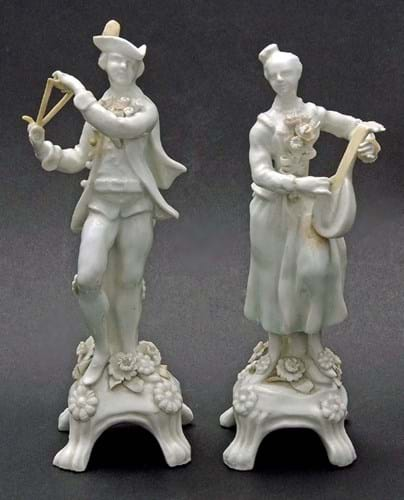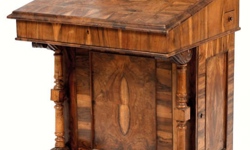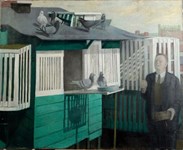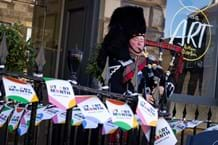The pair – perhaps the first to come onto the market for at least 30 years – provided the highlight of more than 100 lots of Lowestoft porcelain.
Moulds and sherds for these 7½in (18cm) figures were found on the factory site. The slender young lady in contemporary dress holds a mandolin or lute in her left hand. Her companion in tricorn hat plays a triangle.
In his book on Lowestoft, Geoffrey Godden identified two distinct but related groups of figures, attributable to the factory. This pair with distinctive four-scroll bases belongs to the group he speculated could be the earlier of the two.
“These figures are crisply modelled and left in white, and they are thought to be the forerunners of enamelled figures produced a decade or so later,” said David Broom, Keys’ ceramics expert.
A version of the female figure on a flatter base (also in the white) took £4000 as part of the Peter Bradshaw collection of English porcelain figures sold by Bonhams in January 2007. A similar male figure from the Watney collection was sold by Bonhams in 1999.
The estimate for the Keys pair, with both figures restored, was £4000-6000.
Happy Potter
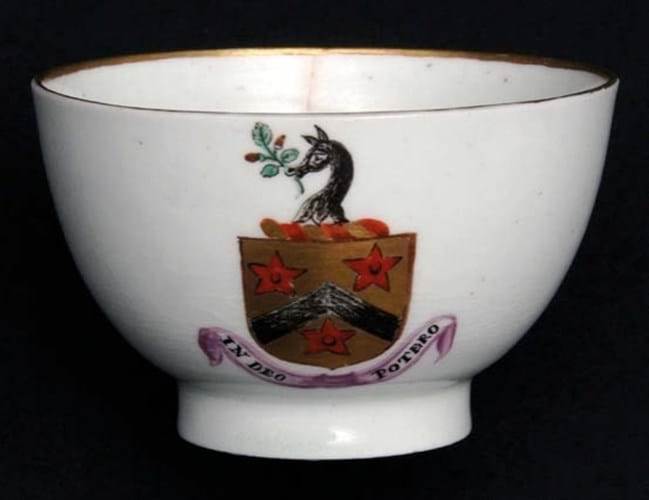
Lowestoft tea bowl with the crest of the Rev Robert Potter – £750.
Most of the Lowestoft factory’s output was focused on tea wares and other utility pieces rather than figures.
The sale included a cracked armorial tea bowl decorated with the crest of the Rev Robert Potter. It sold for £750 (estimate £150-250).
Potter was curate and master at Scarning School near Norwich before his appointment as vicar of Lowestoft and rector of Kessingland in 1789.
More than a dozen pieces from the c.1790 service were sold in group lots by Christie’s in London in 2008. Norwich Castle Museum also has a saucer bearing a 19th century ink label inscribed Lowestoft Pottery Part of a set made for the Revd Potter Rector of the Parish. The Arms painted by Thomas Allen who also painted the East Window of Lowestoft Church.
Broom said: “Once again we have seen strong interest in Lowestoft porcelain, with prices consistently above estimate even for pieces with some damage or restoration. It was interesting to see just how busy the saleroom was – most of the buyers were in the room, including many private collectors as well as dealers.”


